
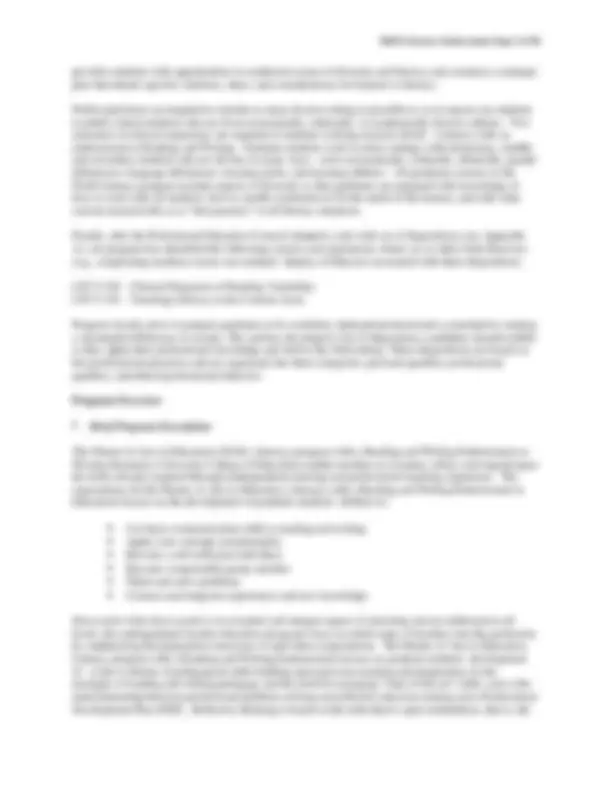
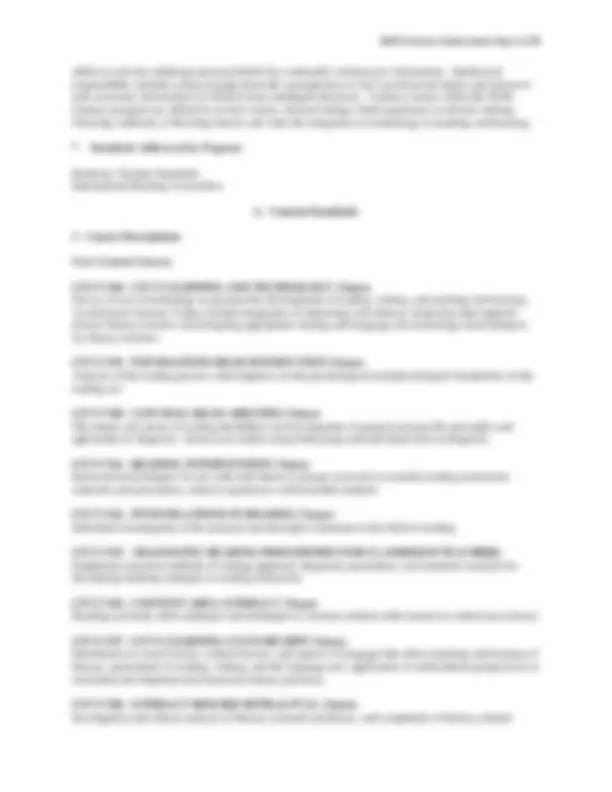
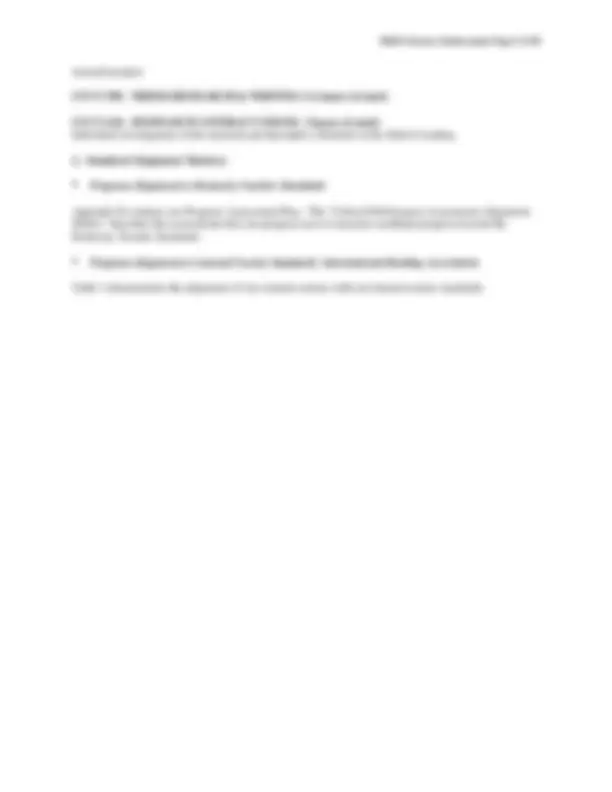
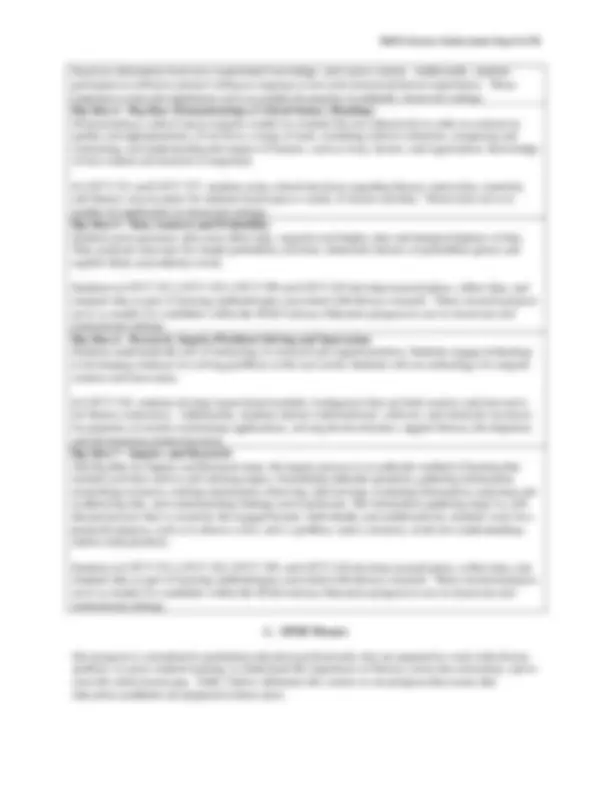
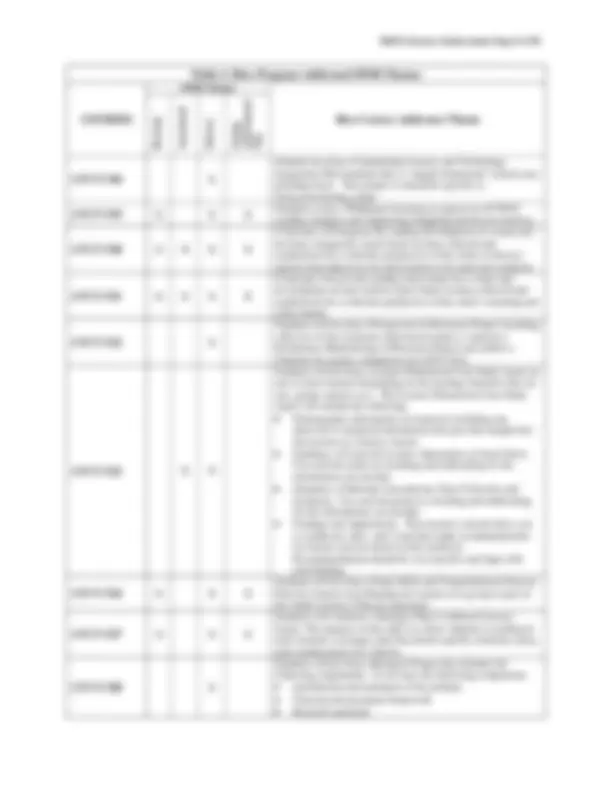
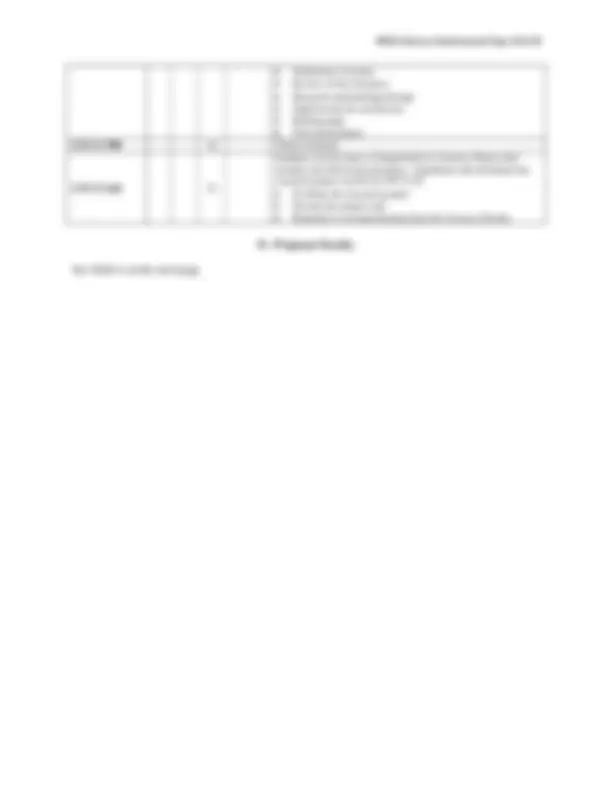
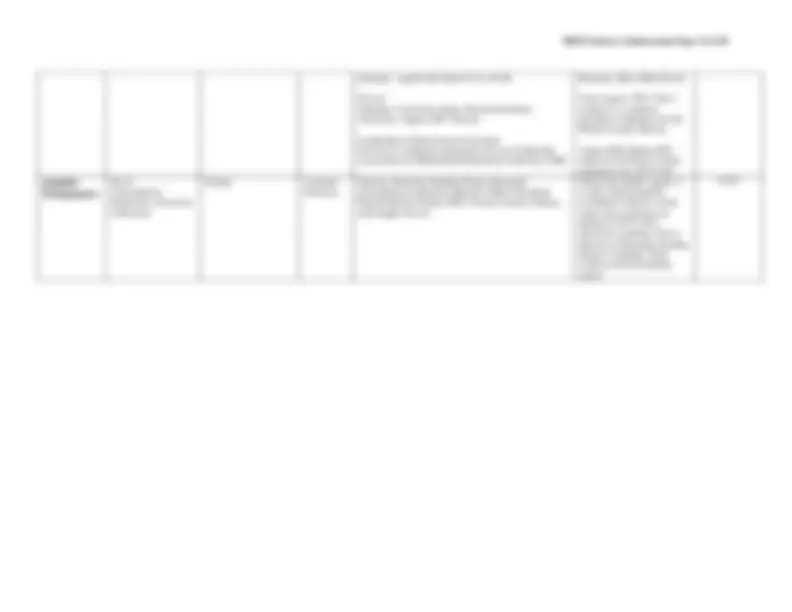
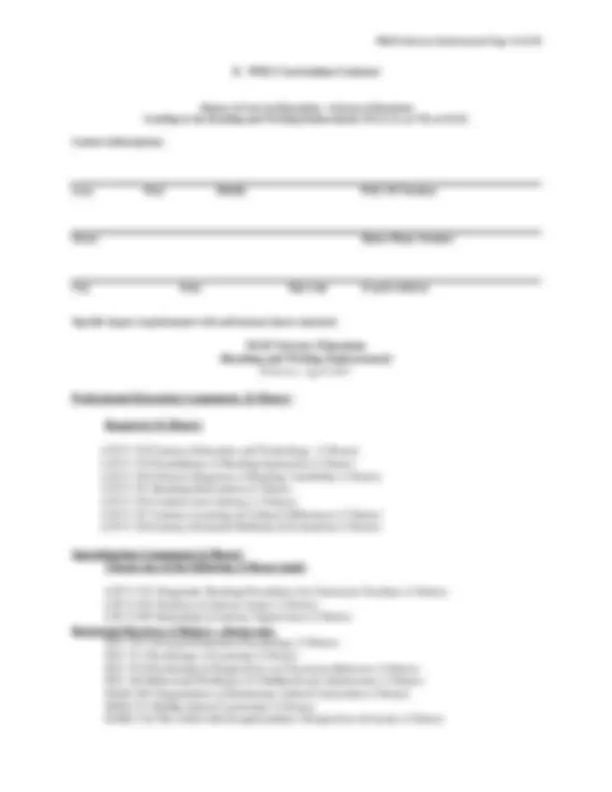
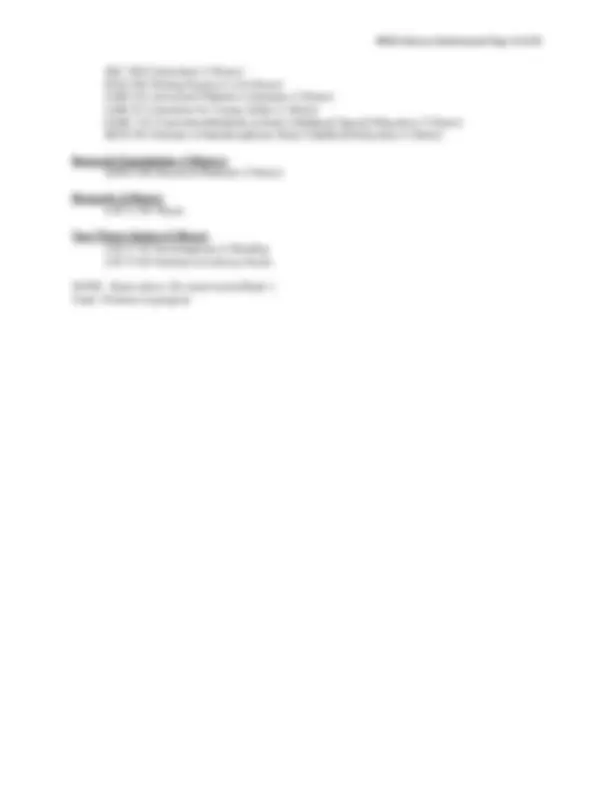
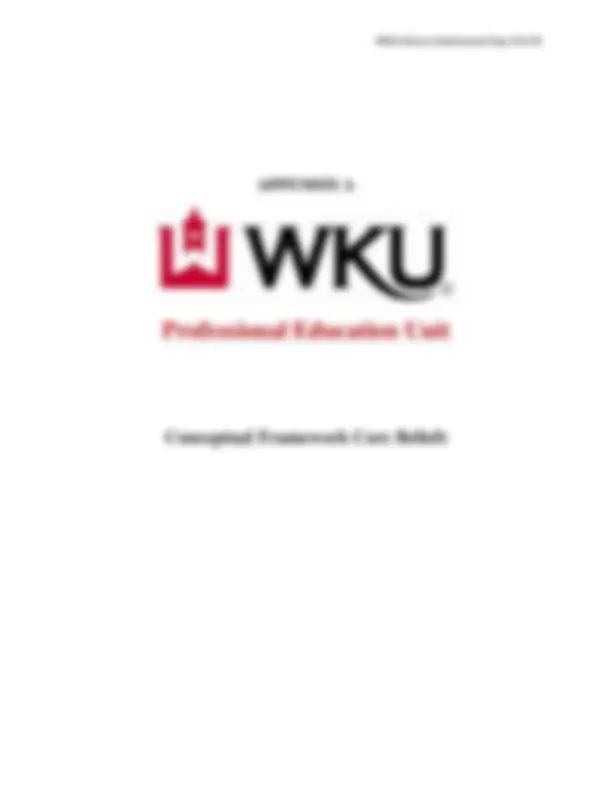
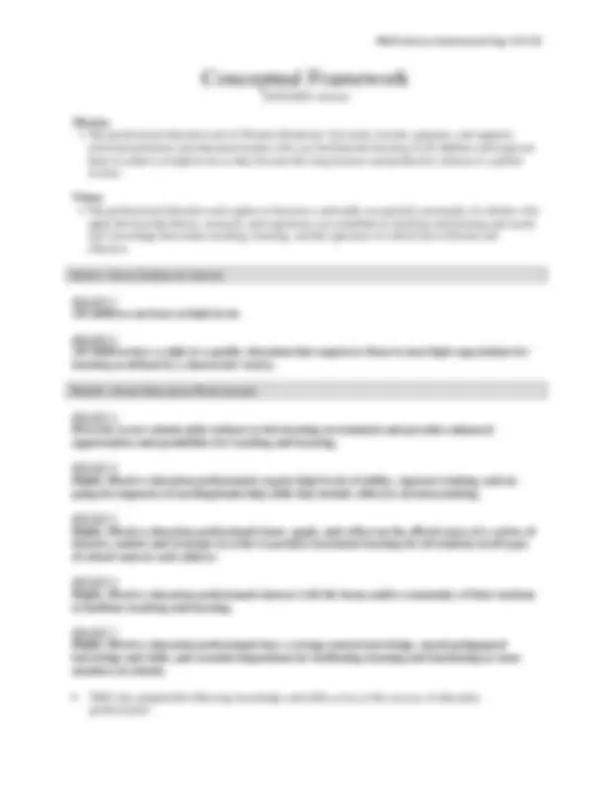
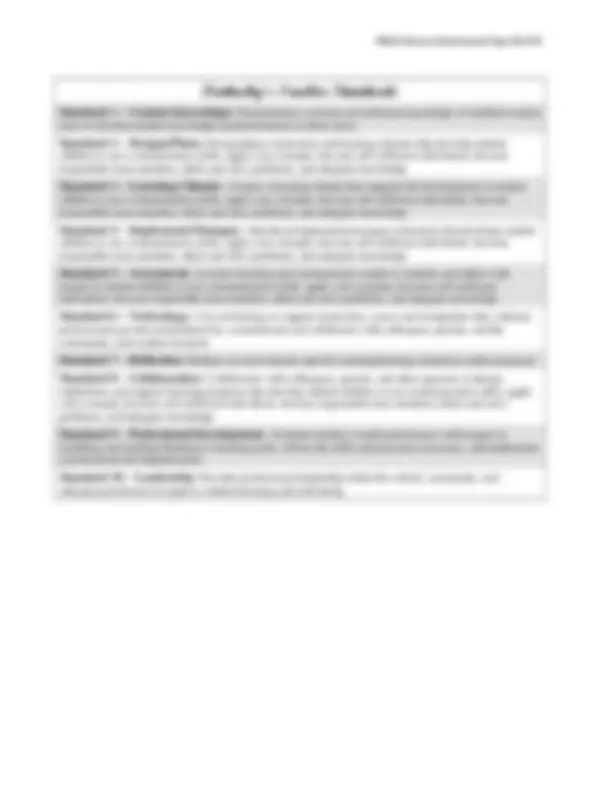
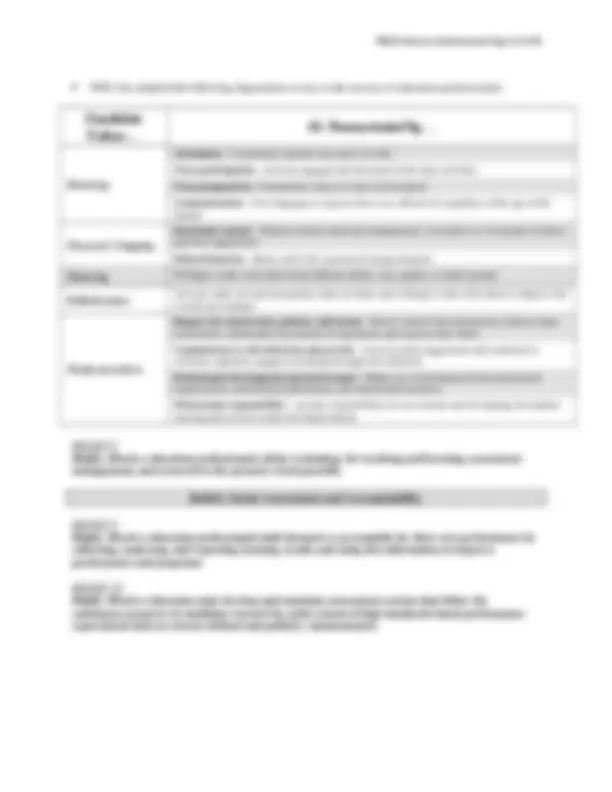
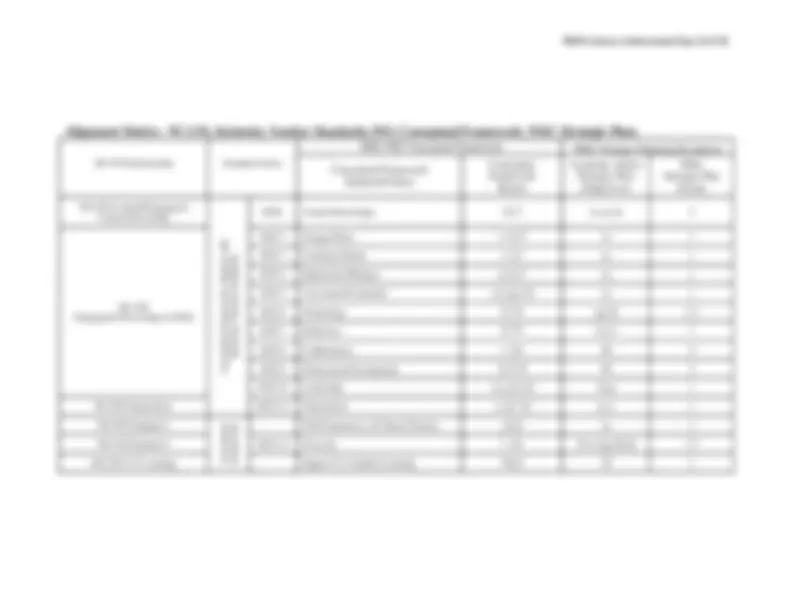
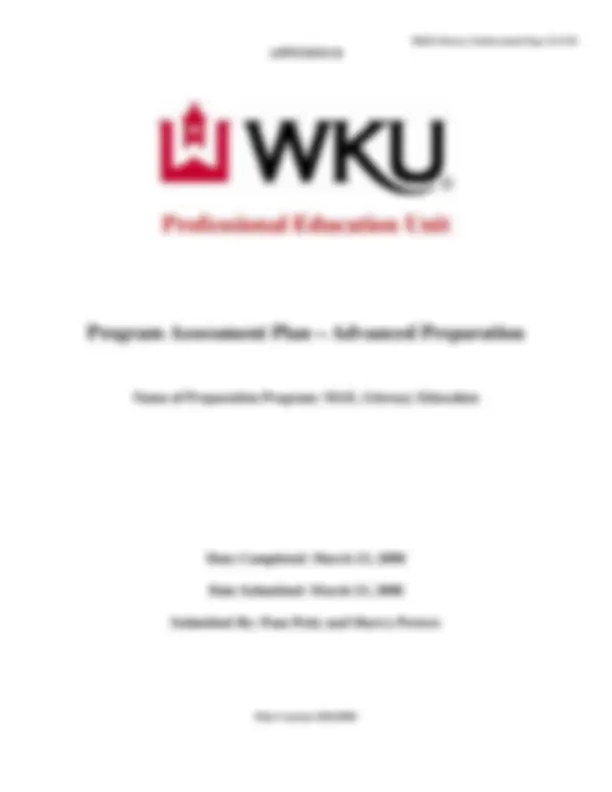
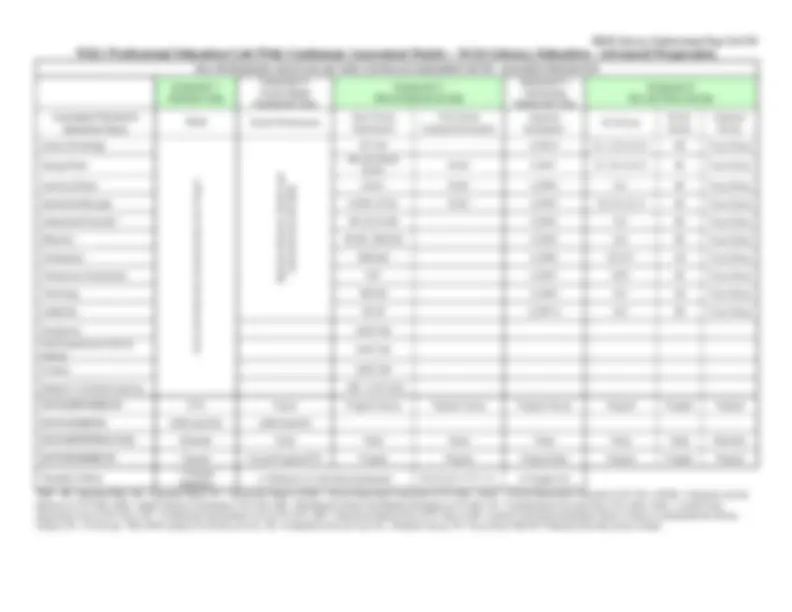
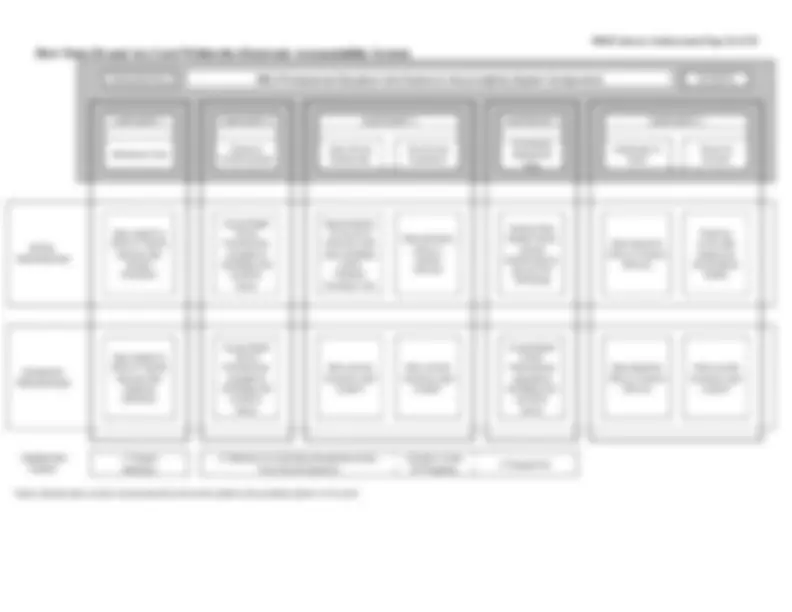
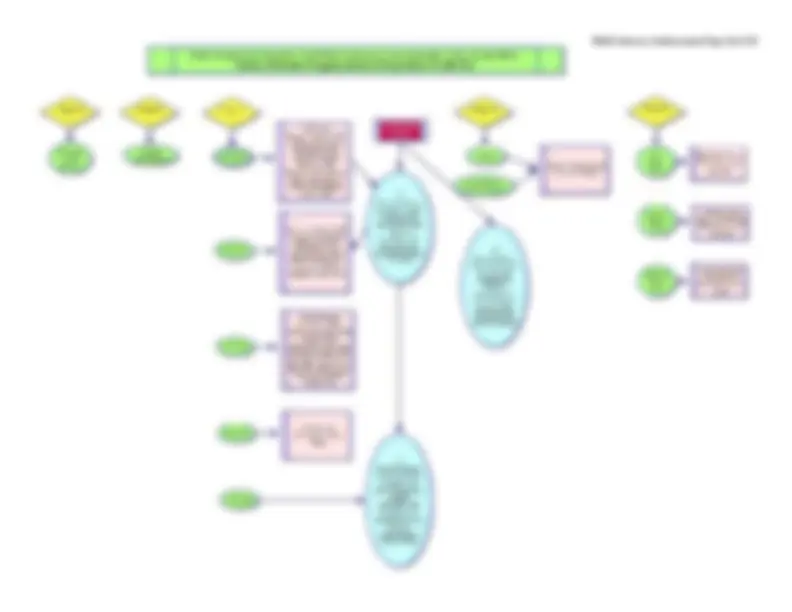
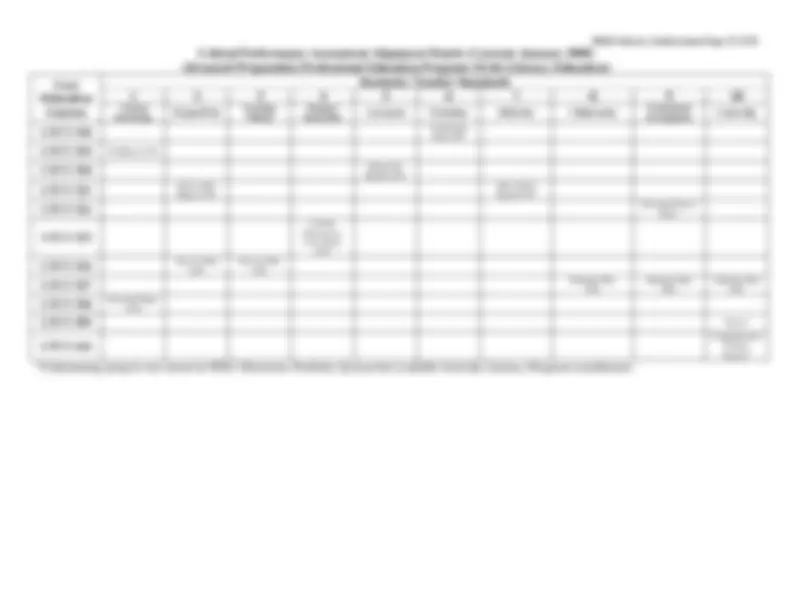
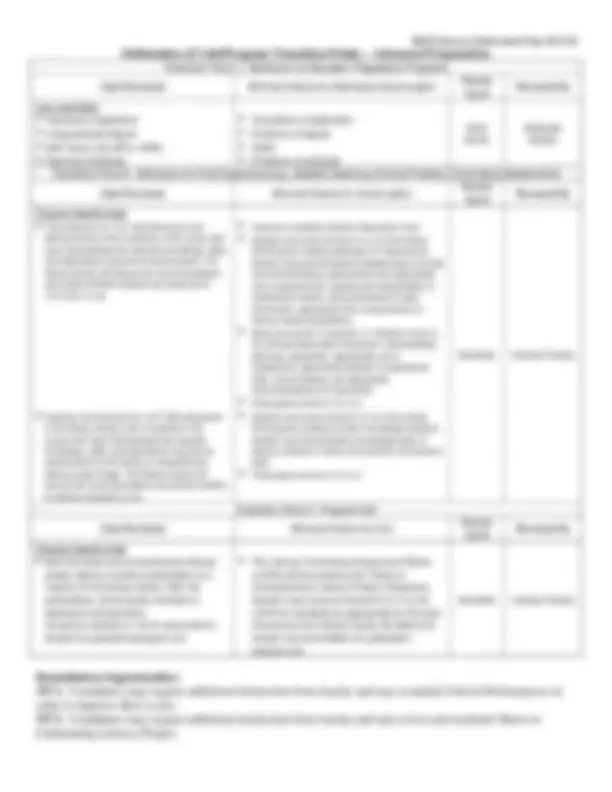
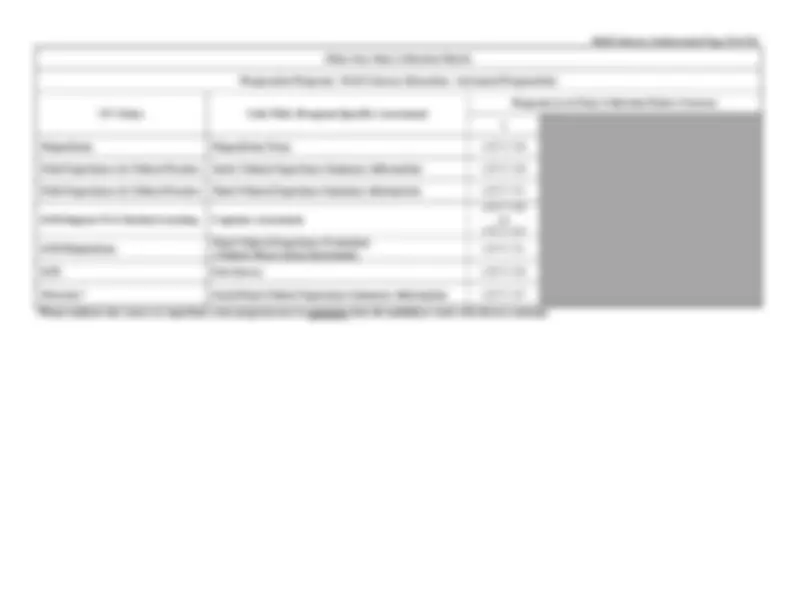
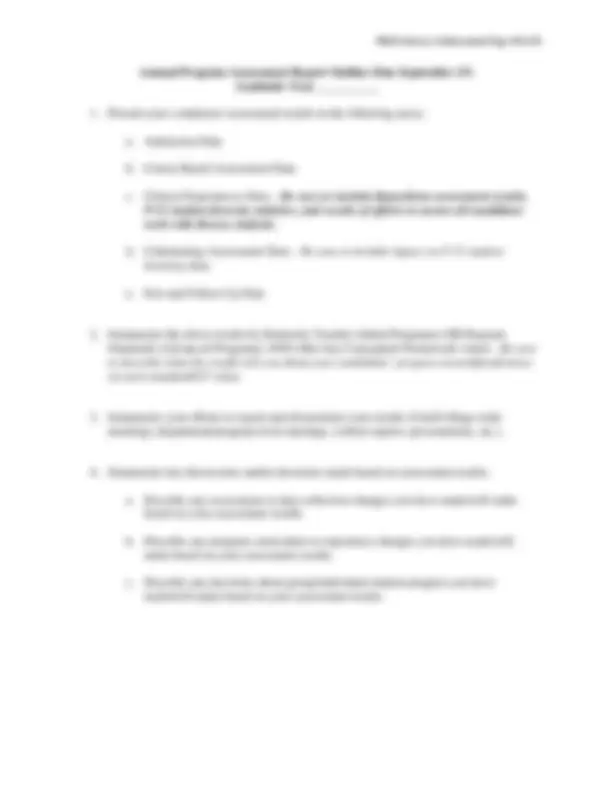


Study with the several resources on Docsity

Earn points by helping other students or get them with a premium plan


Prepare for your exams
Study with the several resources on Docsity

Earn points to download
Earn points by helping other students or get them with a premium plan
Community
Ask the community for help and clear up your study doubts
Discover the best universities in your country according to Docsity users
Free resources
Download our free guides on studying techniques, anxiety management strategies, and thesis advice from Docsity tutors
The literacy education program at western kentucky university, including required courses, clinical experiences, and assessment requirements for students seeking a mae-literacy education degree. Courses cover instructional materials development, literacy instruction, research, and assessment. Students engage in diverse settings and develop research projects, while also demonstrating a knowledge base of formal and informal literacy assessments and their appropriate use.
Typology: Exams
1 / 30

This page cannot be seen from the preview
Don't miss anything!























Preparation Program:
MAE- Literacy Education, Reading and Writing Endorsement
Certification Level: P-4, 5, 6, or 5-8, or 8-
Certification Option: Endorsement
Date Submitted: February 15, 2009
The following WKU faculty and staff have contributed to the development of this document: Lucy Maples, Jennifer Montgomery, Pam Petty, Sherry Powers, Tadayuki Suzuki
Introduction
Program Relationship to Unit Conceptual Framework and Continuous Assessment Plan
WKU’s Conceptual Framework represents beliefs and values that are shared by all programs that prepare university students to enter education professional fields. These fields include:
All these education professional preparation programs are considered by the National Council for Accreditation of Teacher Education (NCATE) and Kentucky’s Education Professional Standards Board (EPSB) to represent WKU’s Professional Education Unit. Faculty representatives from each of the education fields in the Unit were involved in various aspects related to the development and approval of the Conceptual Framework. An abridged version of the Conceptual Framework is attached to this document as Appendix A.
It is important to note that during the development of the Conceptual Framework, committee members thought it important to delineate all essential beliefs, ideas, and implications even if they were difficult to measure or live out. Thus, many beliefs, ideas, or implications reflect what the unit aspires to accomplish over time. At this point, program representatives have worked together in the current assessment cycle of the unit to focus on the following key values: Diversity, Reflection, Knowledge, Skills, and Dispositions, and Technology.
Based on these values, the Professional Education Council adopted the unit-wide Continuous Assessment Plan. From this plan, each program developed a Program Assessment Plan (Appendix B). As can be seen from our plan, the first “Continuous Assessment Matrix” maps out how our program attempts to live out the unit-wide assessment vision. The “Critical Performance Assessment Alignment Matrix” describes the assessments that our program uses to measure candidate progress toward the Kentucky Teacher Standards, which include technology and reflection. Unless noted, all these assessments are collected within the unit’s Electronic Portfolio and Accountability Systems and are used to guide decisions as indicated in the Transition Points described earlier. The “Other Key Data Collection Matrix” identifies where other unit-wide data related to the unit Conceptual Framework are collected within our program.
Furthermore, to ensure that all our program candidates work with diverse students, we have identified the clinical field placement associated with LTCY 527, Literacy Learning and Cultural Differences, as the designated experience where candidates are placed in diverse settings. We determined our most diverse settings by averaging the ethnic diversity of the schools in our service area (about 11%) and selecting schools as diverse that exceed this percentage. The following courses, assessments, and experiences provide additional opportunities for our program candidates to address topics related to diversity:
LTCY 520 – Clinical Diagnosis of Reading Variability – Clinicians diagnose reading development of a client and develop a case summary report based on data collected and synthesized for a coherent perspective of the client in literacy. LTCY 521- Reading Intervention – Clinicians develop intervention report with targeted, specific objectives for reading/literacy instruction during clinical sessions. LTCY 527 - Literacy Learning and Cultural Differences - Strategic Plan to Address Literacy Issues
ability to actively challenge personal beliefs by continually seeking new information. Intellectual responsibility includes caring enough about the consequences of one’s professional duties and actions to seek necessary information on which to base intelligent decisions. Various courses within the MAE- Literacy program are offered in on-line venues, clinical settings, field experiences in diverse settings (Housing Authority of Bowling Green) and value the integration of technology in teaching and learning.
Kentucky Teacher Standards International Reading Association
A. Content Standards
1. Course Descriptions
Core Content Courses
LTCY 518: LTCY LEARNING AND TECHNOLOGY 3 hours Survey of use of technology to promote the development of reading, writing, and teaching and learning via electronic formats. Topics include integration of technology into literacy instruction that supports diverse literacy learners and designing appropriate reading and language arts technology-based projects for literacy learners.
LTCY 519: FOUNDATIONS READ INSTRUCTION 3 hours Analysis of the reading process with emphasis on the psychological and physiological foundations of the reading act.
LTCY 520: CLIN DIAG READ ABILITIES 3 hours The nature and causes of reading disabilities and investigation of general and specific principles and approaches to diagnosis. Actual case studies using both group and individual tests in diagnosis.
LTCY 521: READING INTERVENTION 3 hours Instructional techniques for use with individuals or groups involved in remedial reading instruction; materials and procedures; clinical experiences with remedial students.
LTCY 522: INVESTIGATIONS IN READING 3 hours Individual investigation of the research and descriptive literature in the field of reading.
LTCY 523: DIAGNOSTIC READING PROCEDURES FOR CLASSROOM TEACHERS Emphasizes practical methods of reading appraisal, diagnostic procedures, and materials essential for developing teaching strategies in reading instruction
LTCY 524: CONTENT AREA LITERACY 3 hours Reading and study skills strategies and techniques to increase student achievement in content-area classes.
LTCY 527: LTCY LEARNING CULTURE DIFF 3 hours Introduction to social factors, cultural factors, and aspects of language that affect teaching and learning of literacy, particularly in reading, writing, and the language arts; application of multicultural perspectives to curriculum development and classroom literacy practices.
LTCY 528: LITERACY RESCRH METH & EVAL 3 hours Investigation and critical analysis of literacy research and theory, and completion of literacy related-
research project.
LTCY 599: THESIS RESEARCH & WRITING 1-6 hours (6 total)
LTCY 624: SEMINAR IN LITERACY ISSUES 3 hours (6 total) Individual investigation of the research and descriptive literature in the field of reading
2. Standard Alignment Matrices
Appendix B contains our Program Assessment Plan. The “Critical Performance Assessment Alignment Matrix” describes the assessments that our program uses to measure candidate progress toward the Kentucky Teacher Standards.
Table 1 demonstrates the alignment of our content courses with our learned society standards.
3. Courses/Experiences that Address the Professional Code of Ethics
LTCY 520: Clinical experiences including Diagnostic Report; communication with parents regarding student success and school educators if appropriate
LTCY 521: Clinical experiences including Intervention Report; communication with parents regarding student success and school educators if appropriate
LTCY 524: Confidentiality and ethics regarding working with diverse populations of literacy learners;
LTCY 528: Forum on human subjects research
B. KERA Initiatives
The Combined Curriculum Document (CCD), located at the following url: http://www.education.ky.gov/KDE/Instructional+Resources/Curriculum+Documents+and+Resources/Teaching+Tools/Combined+Curriculum+Documents/, is a resource created by the Kentucky Department of Education to show the connection between the Academic Expectations (what students should know and be able to do as a result of their school experience), the Program of Studies (the minimum required content standards students shall be taught to meet the high school graduation requirements), and the Core Content for Assessment (the content that is appropriate to be included on the state assessment). The CCD subsumes these three Kentucky P- curriculum requirements under the umbrella of “Big Ideas.” Table 2 describes how we introduce our candidates to the CCD and to each of the “Big Ideas” associated with our education preparation program, as well as how we ensure our candidates are prepared to teach these concepts to meet the KDE P- curriculum requirements in their future P-12 classrooms.
Table 2: Program Alignment to KERA “Big Ideas” for (Literacy Education)
Big Idea 1: Forming a Foundation (Reading) Forming a foundation requires readers to develop and apply basic reading skills and strategies across genres to read and understand texts at the appropriate grade level. This involves reading a variety of texts at the word, sentence, and connected text level across all content areas.
In LTCY 519, graduate students design literature-based lesson plans and develop webquests that focus on comprehension skills and strategies. Big Idea 2: Interpreting Text (Reading) Interpreting text requires readers to extend their initial impressions to develop a more complete understanding of what is read. This involves linking information across parts of a text, as well as focusing on specific information. Texts encompass literary and informational texts (expository, persuasive, and procedural texts and documents). Strategies for interpreting print texts can also be applied to non-print texts (e.g., digital, environmental).
In LTCY 521, LTCY 523, and LTCY 524, students read and synthesize text for information regarding literacy theory and practice in clinical and classroom settings. Students respond to assigned texts in writing, in group discussions, and in classroom presentations. Additionally, these responses to text serve as models for practice in authentic classroom settings. Big Idea 3: Big Idea: Reflecting and Responding to Text (Reading) Reflecting and responding to text requires readers to connect knowledge from the text with their own background knowledge and experience. The focus is on how the text relates to personal knowledge.
In LTCY 519, LTCY 520 and LTCY 521, students develop instructional materials and literacy plans
based on information from text, experiential knowledge, and course content. Additionally, students participate in reflective journal writing in response to text and classroom/clinical experiences. These responses to text and experiences serve as models for practice in authentic classroom settings. Big Idea 4 : Big Idea: Demonstrating a Critical Stance (Reading) Demonstrating a critical stance requires readers to consider the text objectively in order to evaluate its quality and appropriateness. It involves a range of tasks, including critical evaluation, comparing and contrasting, and understanding the impact of features, such as irony, humor, and organization. Knowledge of text content and structure is important.
In LTCY 521 and LTCY 527, students make critical decisions regarding literacy instruction, materials, and literacy success plans for students based upon a variety of factors and data. These tasks serve as models for application in classroom settings. Big Idea 5: Data Analysis and Probability Students pose questions, plan and collect data, organize and display data and interpret displays of data. They generate outcomes for simple probability activities, determine fairness of probability games and explore likely and unlikely events.
Students in LTCY 522, LTCY 528, LTCY 599 and LTCY 624 develop research plans, collect data, and interpret data as part of learning methodologies associated with literacy research. These research projects serve as models for candidates within the MAE-Literacy Education program to use in classroom and instructional settings. Big Idea 6: Research, Inquiry/Problem-Solving and Innovation Students understand the role of technology in research and experimentation. Students engage technology in developing solutions for solving problems in the real world. Students will use technology for original creation and innovation.
In LTCY 518, students develop instructional modules (webquests) that are both creative and innovative for literacy instruction. Additionally, students interact with hardware, software, and electronic resources for purposes of assistive technology applications, serving diverse learners, support literacy development, and documenting student learning. Big Idea 7: Inquiry and Research The Big Idea for Inquiry and Research states: the inquiry process is an authentic method of learning that includes activities such as self-selecting topics, formulating authentic questions, gathering information, researching resources, crafting experiments, observing, interviewing, evaluating information, analyzing and synthesizing data, and communicating findings and conclusions. The information-gathering stage is a self- directed process that is owned by the engaged learner. Individually and collaboratively, students work for a particular purpose, such as to discuss a text, solve a problem, make a decision, reach new understandings, and/or create products.
Students in LTCY 522, LTCY 528, LTCY 599, and LTCY 624 develop research plans, collect data, and interpret data as part of learning methodologies associated with literacy research. These research projects serve as models for candidates within the MAE-Literacy Education program to use in classroom and instructional settings.
C. EPSB Themes
Our program is committed to graduating education professionals who are prepared to work with diverse students, to assess student learning, to understand the importance of literacy across the curriculum, and to close the achievement gap. Table 3 below delineates the courses in our program that ensure that education candidates are prepared in these areas.
Students will develop a Comprehensive Literacy Project that includes the following dynamics: implement and document the research project started in LTCY 522
D. Program Faculty
See Table 4 on the next page.
PRD3 Literacy Endorsement Page 11 of 30
Table 4: Education and Content Faculty Information
FacultyName
Highest Degree, Field, & University
Assignment: Indicate the role(s)
of the faculty
member
1
FacultyRank
2
Scholarship
3 , Leadership in Professional
Organizations, and Service
4 : List up to 3 major
contributions in the past 3 years
5
Teaching or other professional experience in
P-12 schools
Status to institution &
education
unit
6
Sherry W.
Powers
Ed.D. / University ofKentucky/
Instruction
and Administration,Reading Specialization
Dept. Head, SpecialInstructional Programs; Associate Professor ofLiteracy
AssociateProfessor
Powers, S.W.,
Zippay, C., & Butler, B. (2006).
Connecting teacher beliefs and classroom readingintervention practices: Equity pedagogy for diverselearners
.^ Reading Horizons
, 47 (2), pp.121-157.
McIntyre, E., Rightmyer, E.C., Petrosko, J.P.,
Powers,
S.W.
, & Powell, R. (2006). How much should young children read? A study of reading development andclassroom instruction.
Literacy Teaching and Learning:
An International Journal of Early Literacy
, 11(1), pp.51-
Kentucky
Reading Project
, $67,000.00 State Funded Grant, July
2000 – July 2001; $67,000.00 State Funded Grant, July2001 - June 2002; $66,000.00 State Funded Grant, July2002 - July 2003; $66,000.00 State Funded Grant, June2003 - July 2004, $66,000.00 June 2004 - July 2005,$66,000 June 2005-2006, $66,000 June 2006-2007.
(Total
state grant funding for KRP in seven years =$464,000.00).
P-6 Elementary SchoolCertification; K-5 teachingexperience in Kentucky;supervising K-12 LiteracyClinic clinicians and clients;supervision of student fieldexperiences in public schools;Directed Kentucky ReadingProject for 8 years andsupervised graduate studentliteracy instruction in K-6classrooms; Reading Firstsupervisor for training ofLiteracy Coaches in publicschools; *Providing coachingvisits and teaching modellessons for graduate studentsenrolled in the WKUKentucky Reading Project; *Research consultant forWarren County school districtadministrators in designingresearch component for theReading First grant.
FT/FT
Pamela W.Petty
Ed. D. in Theory andPractice in TeacherEducation (collateralstudies in Child andFamily Studies andInformation Sciences)
Faculty
AssociateProfessor
*National presentations at the International ReadingAssociation’s national, regional, and state conferences; *Multiple presentations at AACTE national conferences. *Co -Director of READ KY; *Principal Investigator of Just Think! Grant – partnershipbetween WKU and the Housing Authority of Bowling
*Elementary classroomteacher in grade 2; *Language arts coordinatorfor grade 1; *Supervision ofundergraduate students
FT/FT
PRD3 Literacy Endorsement Page 13 of 30
literature. Against the Grain,19 (1), 84-86. Service: Alternate, University Senate, Western KentuckyUniversity, August 2007- Present Leadership in Professional Association: Served as a conference proposal reviewer for NationalAssociation for Multicultural Education Conference 2008
Kentucky, May 2006-Present From August, 2007, I haveworked as a volunteertranslator of Japanese for theWarren County Schools. August 2005-Spring 2007,supervised 20 hours of fieldexperience for LTCY 420.
JenniferMontgomery
Ed. D. Curriculum &Instruction, Universityof Houston
Faculty
AssistantProfessor
Director, Kentucky Reading Project; Researchpresentation at national conference (NRC); President,Special Interest Group of IRA: Science Fiction, Fantasy,and Graphic Novels
Classroom teacher, grades 2-5; after-school programcoordinator; literacy coach;supervision of preserviceteachers (LTCY 420);classroom coaching visits asDirector of Kentucky ReadingProject; Academic TeamCoach at local elementaryschool
FT/FT
E. WKU Curriculum Contract
Master of Arts in Education – Literacy Education Leading to the Reading and Writing Endorsement (P-4, 5, 6, or 5-8, or 8-12)
Contact Information:
Last, First Middle WKU ID Number
Street Home Phone Number
City State Zip Code E-mail Address
Specific degree requirements with advisement sheets attached.
MAE Literacy Education (Reading and Writing Endorsement) Effective April 2007
Professional Education Component (21 Hours)
Required (21 Hours)
LTCY 518 Literacy Education and Technology (3 Hours) LTCY 519 Foundations of Reading Instruction (3 Hours) LTCY 520 Clinical Diagnosis of Reading Variability (3 Hours) LTCY 521 Reading Intervention (3 Hours) LTCY 524 Content Area Literacy (3 Hours) LTCY 527 Literacy Learning & Cultural Differences (3 Hours) LTCY 528 Literacy Research Methods & Evaluation (3 Hours)
Specialization Component (6 Hours) Choose one of the following (3 Hours total)
LTCY 523 Diagnostic Reading Procedures for Classroom Teachers (3 Hours) LTCY 624 Seminar in Literacy Issues (3 Hours) LTCY 695 Internship in Literacy Supervision (3 Hours) Restricted Electives (3 Hours) - choose one: gy (3 Hours)
sroom Behavior (3 Hours)
pectives & Issues (3 Hours)
PSY 510 Advanced Education Psycholo PSY 511 Psychology of Learning (3 Hours) PSY 519 Psychological Perspectives on Clas PSY 540 Behavioral Problems of Childhood and Adolescence (3 Hours) ELED 503 Organization of Elementary School Curriculum (3 Hours) MGE 571 Middle School Curriculum (3 Hours) EXED 516 The Child with Exceptionalities: Pers
Transition Point 1: Admission to Education Preparation Programs Data Reviewed Minimal Criteria for Admission/Continuation ReviewCycle^ ReviewedBy Unit Level Data:
Each Month
Graduate Studies
Transition Point 2: Admission to Final Experience (e.g., Student Teaching, Clinical Practice, Culminating Assessment) Data Reviewed Minimal Criteria for Continuation ReviewCycle^ ReviewedBy
Program Specific Data
Semester LiteracyFaculty
faculty a list of students in the course who have demonstrated the requisite knowledge, skills, and dispositions required for advancement. The literacy faculty will discuss the recommendations and decide whether students are advanced to LTCY 521 or not.
meeting standards for Assessment: Student must demonstrate knowledge base of formal and informal literacy assessments and appropriate use of assessments; analysis and interpretation of assessment results, using assessment to plan intervention; appropriate use of assessment for diverse student populations.
Observation Instrument demonstrating planning, preparation, appropriate use of assessment, appropriate analysis of assessment data, record keeping, and appropriate recommendations for intervention.
faculty a list of students in the course who have demonstrated the requisite knowledge, skills, and dispositions required for advancement to the thesis or comprehensive literacy project stage. The literacy faculty will discuss the recommendations and decide whether to advance students or not.
meeting Content Knowledge standard: Student must demonstrate a knowledge-base of literacy research or theory and practice connected to topic.
Transition Point 3: Program Exit Data Reviewed Minimal Criteria for Exit ReviewCycle^ ReviewedBy
Program Specific Data
Semester LiteracyFaculty
project options include a presentation to a majority of the literacy faculty. After the presentation, those faculty members in attendance will decide by consensus whether or not to recommend a student for graduation/program exit.
scored by the Thesis or Comprehensive Literacy Project chairperson. Student must score at the level 3 or 4 on the LCAR for standards as appropriate for the topic. Consensus from literacy faculty will determine student recommendation for graduation/ program exit.
Remediation Opportunities: TP 1: Candidates may request additional instruction from faculty and may resubmit Critical Performances in order to improve their scores. TP 2: Candidates may request additional instruction from faculty and may revise and resubmit Thesis or Culminating Literacy Project.
EPSB Disclaimer: Teacher certification requirements are subject to change. Before registering for the test(s), please refer to the Education Professional Standards Board (EPSB) website at www.kyepsb.net for current requirements or contact Ms. Rice at 502-564-4606 or toll free 888-598-7667.
Student Signature: Date: ____________
Advisor Signature: Date: ____________
F. Syllabi
The following course syllabi associated with this program are available for review at http://edtech.wku.edu/peu/course-syllabi-epsb.htm:
LTCY 518: Literacy Education and Technology (3 Hours) LTCY 519: Foundations of Reading Instruction (3 Hours) LTCY 520: Clinical Diagnosis of Reading Variability (3 Hours) LTCY 521: Reading Intervention (3 Hours) LTCY 522: Investigations in Reading (3 Hours) LTCY 523: Diagnostic Reading Procedures for Classroom Teachers (3 Hours) LTCY 524: Content Area Literacy (3 Hours) LTCY 527: Literacy Learning & Cultural Differences (3 Hours) LTCY 528: Literacy Research Methods & Evaluation (3 Hours) LTCY 599: Thesis (6 Hours) LTCY 624: Seminar in Literacy Issues (3 Hours)
Conceptual Framework (03032008 version)
Mission The professional education unit of Western Kentucky University recruits, prepares, and supports school practitioners and education leaders who can facilitate the learning of all children and empower them to achieve at high levels as they become life-long learners and productive citizens in a global society.
Vision The professional education unit aspires to become a nationally recognized community of scholars who apply the best that theory, research, and experience can contribute to teaching and learning and create new knowledge that makes teaching, learning, and the operation of school more efficient and effective.
Beliefs About Children & Schools
BELIEF 1 All children can learn at high levels.
BELIEF 2 All children have a right to a quality education that empowers them to meet high expectations for learning as defined by a democratic society.
Diversity in our schools adds richness to the learning environment and provides enhanced opportunities and possibilities for teaching and learning.
BELIEF 4 Highly effective education professionals require high levels of ability, rigorous training, and on- going development of teaching/leadership skills that include reflective decision-making.
BELIEF 5 Highly effective education professionals know, apply, and reflect on the effectiveness of a variety of theories, models and strategies in order to produce maximum learning for all students in all types of school contexts and cultures.
BELIEF 6 Highly effective education professionals interact with the home and/or community of their students to facilitate teaching and learning.
BELIEF 7 Highly effective education professionals have a strong content knowledge, sound pedagogical knowledge and skills, and essential dispositions for facilitating learning and functioning as team members in schools.
Kentucky’s Teacher Standards
areas to develop student knowledge and performance in those areas
abilities to use communication skills, apply core concepts, become self-sufficient individuals, become responsible team members, think and solve problems, and integrate knowledge
abilities to use communication skills, apply core concepts, become self-sufficient individuals, become responsible team members, think and solve problems, and integrate knowledge
abilities to use communication skills, apply core concepts, become self-sufficient individuals, become responsible team members, think and solve problems, and integrate knowledge
respect to student abilities to use communication skills, apply core concepts, become self-sufficient individuals, become responsible team members, think and solve problems, and integrate knowledge
professional growth and productivity; communicate and collaborate with colleagues, parents, and the community; and conduct research
implement, and support learning programs that develop student abilities to use communication skills, apply core concepts, become self-sufficient individuals, become responsible team members, think and solve problems, and integrate knowledge
modeling and teaching Kentucky's learning goals, refines the skills and processes necessary, and implements a professional development plan
education profession to improve student learning and well-being